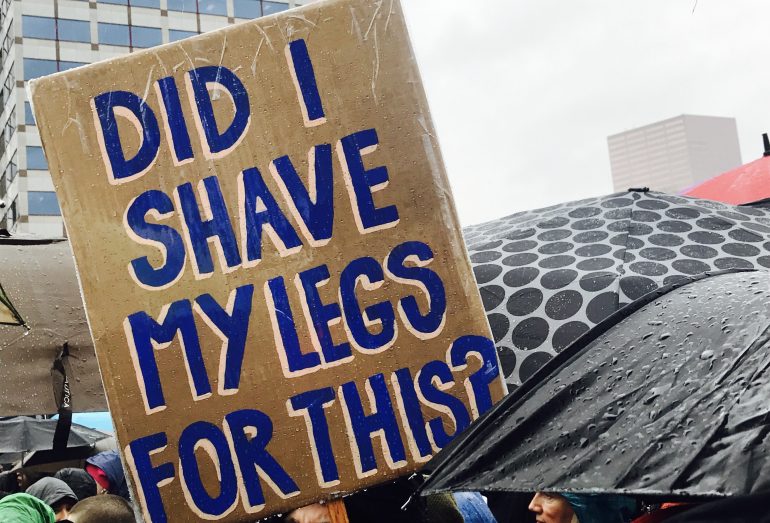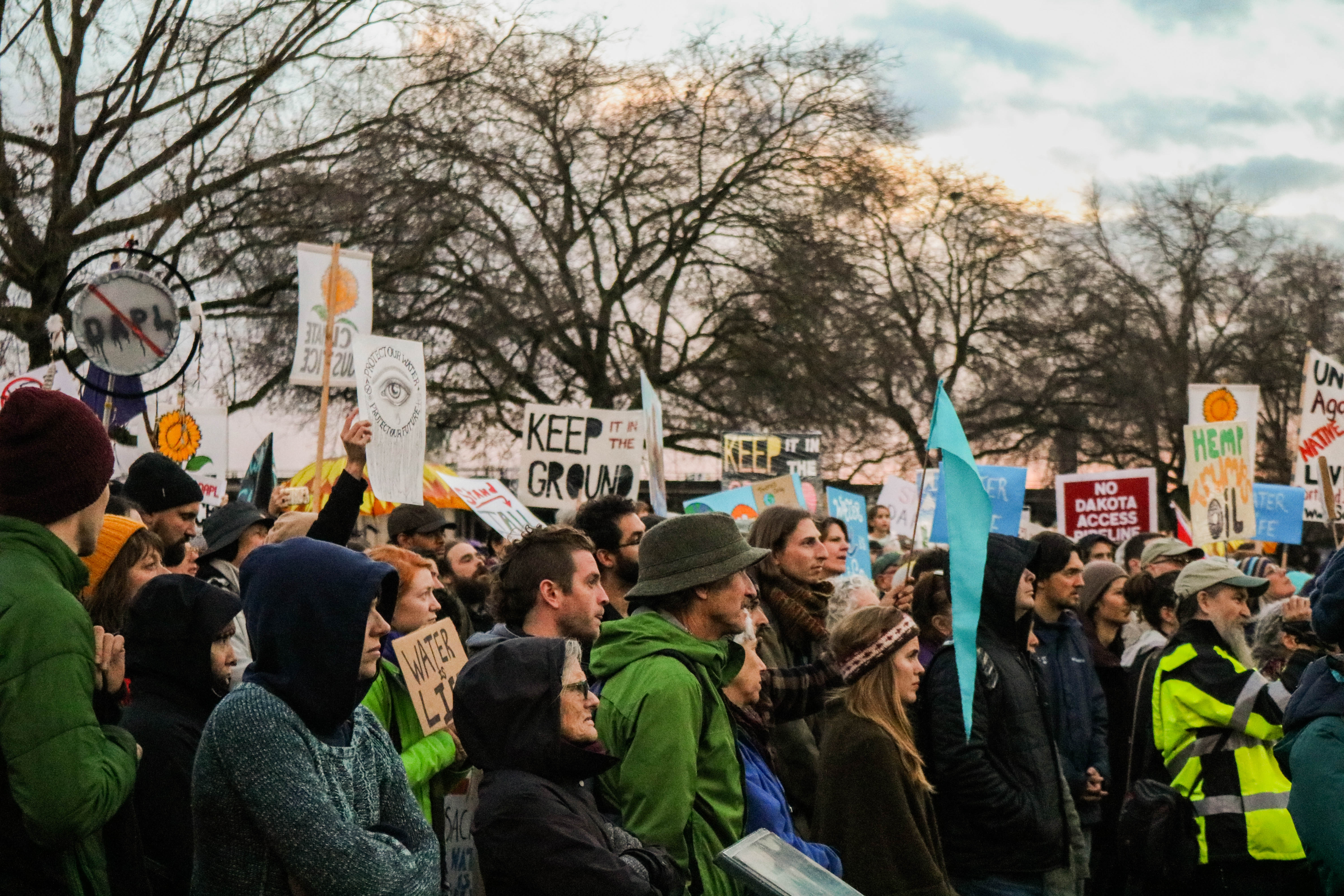“Women are just pissed, frankly. They’ve had it,” Vanessa Williams told the Guardian. “Women are realizing, ‘I’ve got to step up, I’ve got to take care of myself, I’ve got to take care of my kids.’” Williams is an activist and organizer of FIERCE (Feminists Improving Equal Rights in Communities Everywhere) in Northampton County, Pennsylvania. The county handed the vote to Trump in 2016, despite previously voting twice for Obama. Trump’s victory in Northampton was a huge blow to female activists and Democrats. Sentiments shifted, however, from dismay to determination as the first wave of women in the county ran for state and local office against incumbent male Republicans just a year later, and were met with overwhelming support.
Northampton is a microcosm reflecting an incredible nationwide movement of women entering the political sphere. A year after Trump’s inauguration, the U.S. has seen a surge in first-time female candidates entering the race for state and local office, many of who had no previous experience in politics.
Wendy Gooditis was a real estate agent in Virginia. Her final straw was Republican delegate Randy Minchew’s claim that he fought against gerrymandering, which his records clearly falsified. She decided to step in and run for the Virginia House of Delegates. Her fire was ignited by Trump’s election, and a week after attending the Women’s March in Washington, she started a local Indivisible group, one in a network across the country united in resistance against Trump. When she began her campaign, she had $700 and no staff. By Election Day in November, she raised $500,000 and had eight staff members. She defeated three-term incumbent Minchew by around 1000 votes.
Mai Khanh Tran was a pediatrician in Southern California who came to the U.S. from an orphanage in Saigon when she was nine. Raised in a family of migrant farmworkers, she worked as a janitor to pay her way through Harvard. Her call to action came the day after the 2016 election, when she saw a young patient suffering from a brain tumor whose family had only just been able to obtain health insurance through the Affordable Care Act. In June 2017, she announced her run to represent California’s 39th Congressional District, challenging the long-standing Republican Representative Ed Royce. “Now is really the time to stand up and fight and protect the people we care about” she says to the New York Times, “Women are ready to be at the table now on issues that are so current and vital to women now…Our health care, our reproductive rights, also our safety and our dignity.”
Andrea Ramsey of Kansas City, Kansas was the president of a nonprofit children’s health clinic after previous careers as a lawyer and business executive. She said she would have contentedly maintained her position at the care-center, but after Trump’s election and its ensuing trend of Republicans like Kansas Representative Kevin Yoder’s advocating to repeal the Affordable Care Act, she was emboldened to take action. “I was not going to abide that vote,” Ramsey said to the New York Times, “It crystallized my decision to run.” Her campaign raised over $450,000 by the end of 2017 and she will face Yoder in the primaries this August. She commented, “Women are stepping up and winning and I would say that injected a dose of additional enthusiasm into our campaign.”
32 year-old Ashley Bennett was a psychiatric-emergency screener before unseating John Carman, a Republican Atlantic County Freeholder who made a tasteless joke of the Women’s March in a social media post, asking whether the protestors would be home in time to cook dinner. Before her victory, she and many other women in her community attended a January freeholder meeting to address his ‘humor,’ one of whom brought a box of macaroni and cheese with the instructions to “cook his own damn dinner.”
These women had no serious missions to enter politics prior, but disheartened feelings about the track of our country, capitalized by the 2016 election, empowered them to take the action into their own hands. “They were angered by Mr. Trump’s election and energized by the Women’s March in Washington,” wrote Michael Tackett in The New York Times, “[They] are now even more driven to get involved after the flood of sexual harassment allegations against powerful men.”
Emily’s List, the nation’s largest organization among several dedicated to electing female candidates has seen a dramatic flux in interest. During the 10 months preceding the 2016 election, 920 women contacted Emily’s List to inquire about running for office or to otherwise get involved. After Trump’s election, this number has risen to over 22,000 women. Stephanie Schriock, president of the organization, told Tackett, “We have never seen anything like what we have seen over the last 12 months…If you could underline that four times, that’s what I mean.”
She Should Run, another advocacy and support group for women entering politics, saw a similar trend with the average annual number of inquiries rising from 1,800 to more than 15,000 after the election. Cofounder and CEO Erin Loos Cutraro told CNN, “While opposition to Trump may be fueling some of the drive behind women’s engagement, he is also setting an example for them.” She comments that “He fuels the conversation that there’s no one path to the White House; there’s no one background.”
As written by Tom McCarthy for the Guardian, “In the eyes of his critics, Trump as a president has demonstrated a hostility to women, nominating hardly any women for important positions, opposing healthcare and family policies that women champion, and refusing women the dignity of equals.” Sexual assault accusations against Trump that seem to have been swept under the rug have significantly contributed to inflamed sentiments. The threat, outrage, and pain felt by so many in the blond, comb-over wake of Trump has materialized and manifested itself in strong women deciding to make waves that may actually make America great, or at least counter a pattern of ignored repression. The Women’s March empowered these women and demonstrated the capacity of the movement. “It was Donald Trump and the way that he sort of embraced masculinity, but even more specifically, misogyny, in his rhetoric and behavior,” says Kelly Dittmar, a scholar at the Center for American Women and Politics to The New York Times, “To make a statement against that and the policies he espoused sort of pushed them over the edge to not just think about running, but to put their names out there.”
390 women are in the running for the House of Representatives, a historical count unseen in U.S. history. 22 of these candidates are non-incumbent black women, a demographic that currently holds only 18 seats. 49 women have announced their run for Senate, which is 68 percent higher than 2014.
The November results of Virginia’s House of Delegates solidified a palpable shift in the representation of not only women, but minority groups in the voice of U.S. legislature. Danica Roem, the first openly transgender state lawmaker, ousted 25 year incumbent Bob Marshall, who has referred to himself as Virginia’s “chief homophobe.” Dawn Adams vectored over Republican Delegate Manoli Louspassi, becoming the state’s first openly lesbian candidate. Elizabeth Guzman and Hala Ayala, Virginia’s first Latina delegates, unseated Republicans Scott Lingamfelter and Rich Anderson. Kathy Tran is now the state’s first female Asian-American delegate after defeating Republican Lolita Mancheno-Smoak. The state even elected their first socialist delegate, Lee Carter, overturning House Majority Whip Jackson H. Miller.
As rage continues to be converted to fuel, the future may look a little brighter, thanks to women and other oppressed groups taking bold steps into the political spotlight to stand up for threatened rights and representation. In the midst of disillusionment and a feeling of hopelessness for many, these candidates are becoming a microphone for voices that now refuse to go unheard. “If you look at 2017, I think it becomes a historic year of the women,” Anita Dunn, former communications director for President Obama, told the New York Times, “As long as Donald Trump is in the White House, there will be oxygen in this movement.”
This article originally appeared in the print edition of our February 2018, issue.





